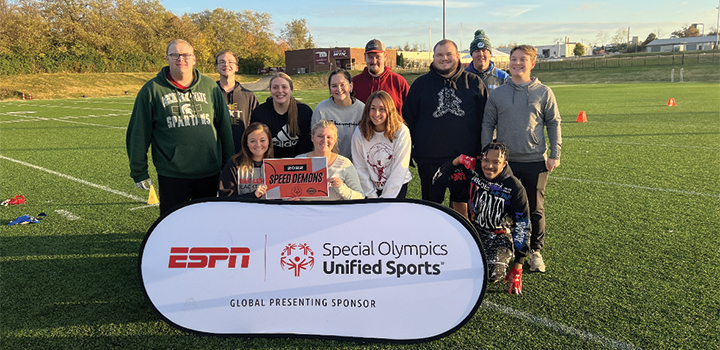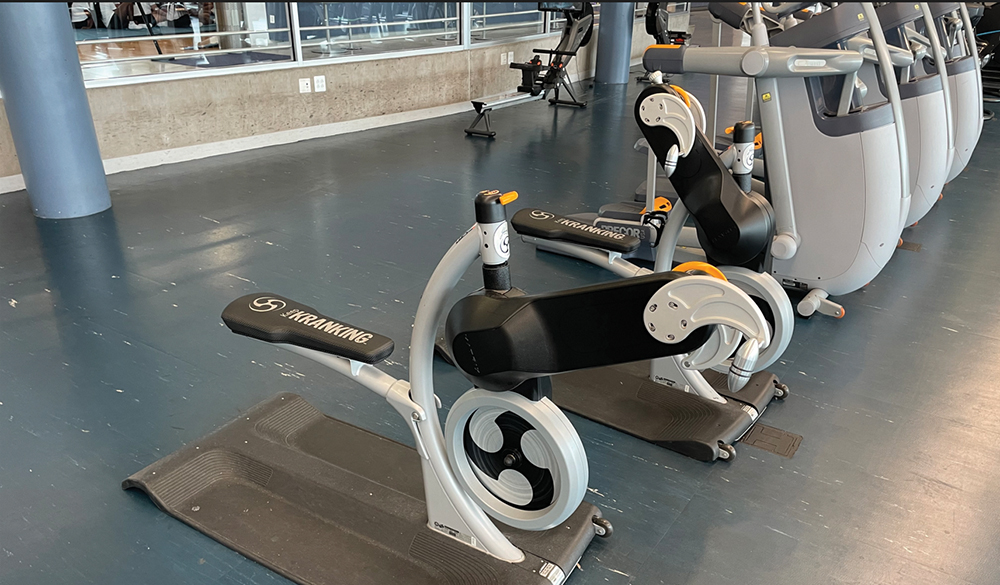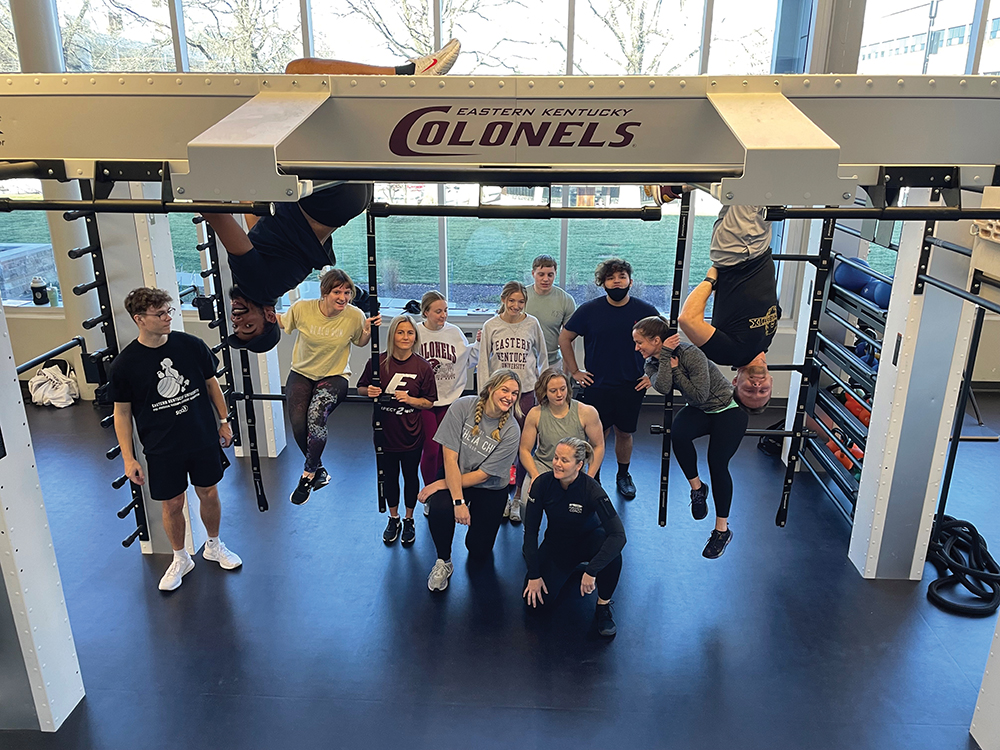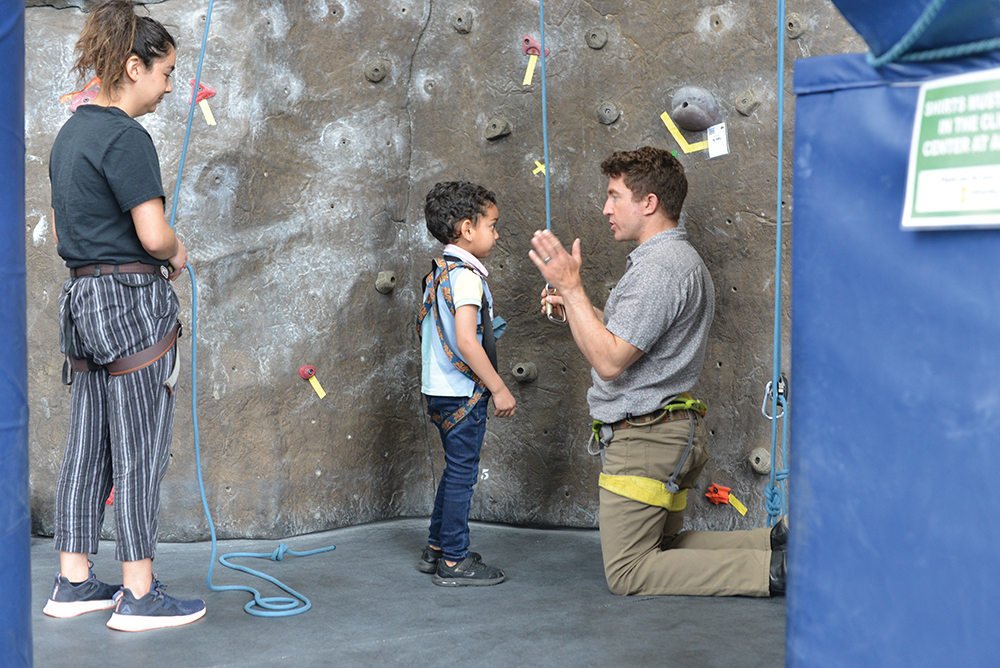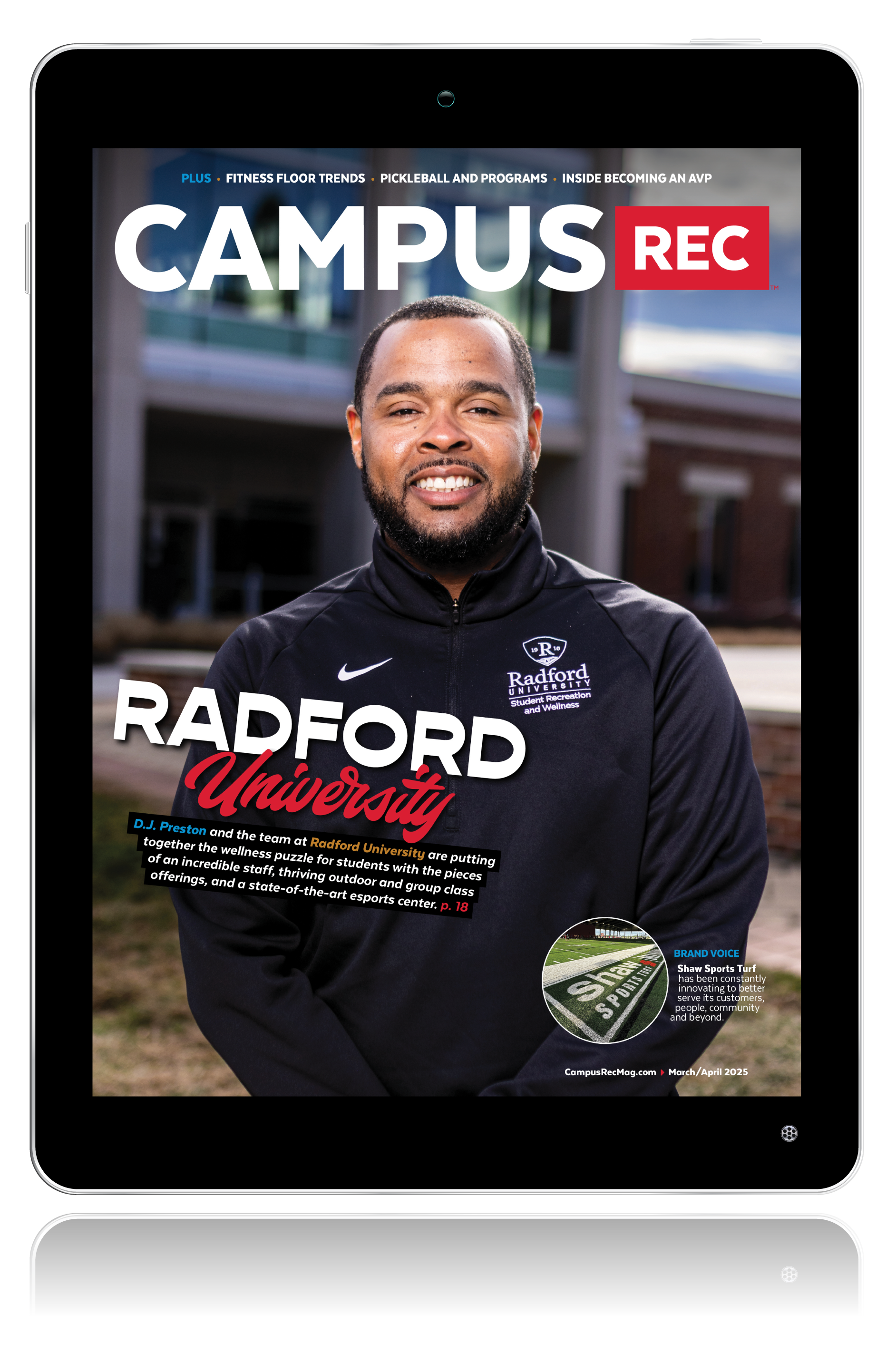University of Idaho (U of I) Recreation and Wellbeing’s Outdoor Program works with individuals who have a variety of non-typical physical or mental abilities. Through the initiative, participants in wheelchairs can join raft trips, climbers who are blind can scale large surfaces and those with countless other atypical cognitive abilities can partake in outdoor adventures.
This program is all part of what Trevor Fulton, the executive director of Recreation and Wellbeing at U of I, said is a mission to make positive campus experiences available for all.
“The Outdoor Program has focused on working with affinity groups who represent populations historically underrepresented or underserved in outdoor offerings,” said Fulton. “Participants don’t have to think about defending at least one aspect of their identity since everyone in the group is sharing it. This allows them to focus on the important things — having fun and working together. The idea is to add real value to lives through equity.”
EXTRA CREDIT: Steps schools are taking to keep the EDI conversation going.
Other popular inclusive activities and programming at U of I Recreation and Wellbeing include:
- A new group fitness room.
- Therapy dogs.
- Cooking classes featuring a variety of cultural cuisines.
- Sexual health education in partnership with the Equity and Diversity Unit.
- A relaxing area accessible for different backgrounds and body types called Well Space.
“We revamped a group fitness room in our facility into a hybrid room that includes multiple free weight racks,” said Fulton. “This specifically has helped accommodate those who don’t want to be on the main weight floor for social or religious reasons. The room is open during normal hours, used for the occasional fitness class and can be reserved for specific groups.”
U of I’s continued inclusion efforts is also in the equipment in the fitness area. Fulton said their Life Fitness Signature Series selectorized machines and SCIFIT Pro1000 are easy to use, adjust and accommodate a variety of abilities.
A commitment to inclusive equipment is also at Florida Atlantic University (FAU) Campus Recreation. Damien Michel, the assistant director of Fitness and Wellness, said the department uses companies such as Life Fitness, Matrix, Technogym and TRX.
“Our Krankcycle by Matrix allows participants in assisted seated devices such as wheelchairs and scooters to perform upper-body cardiovascular-based training,” said Michel. “Our suspension training systems through TRX can be rented by patrons to utilize on our SYNRGY180 training system.”
EXTRA CREDIT: A Q&A on accessibility and inclusion.
In addition, Michel said FAU Campus Recreation’s aquatics area offers a waterproof wheelchair to enter the zero-entry pool and a portable pool lift to lower individuals into the lap lanes.
Similarly, Eastern Kentucky University (EKU) Campus Recreation has also made inclusive strides in aquatics. Dakota McClendon, the assistant director of Adventure Programs, said they offer a resistance whirlpool for low-impact aquatics fitness classes.
When it comes to EKU’s fitness area, McClendon said equipment includes a mix of free weights and machines that accomplish a wide variety of movements. One piece he said they’re exceptionally proud of is Precor’s Queenax. It allows endless options for modifications in their X-Fit class. Despite equipment accessibility, EKU has found a large amount of success through the rec center’s layout.
“We have a large free weight area, which can be very intimidating — even for me,” said McClendon. “However, we also have semi-private rooms and areas that are equipped to do full-body workouts in a less intimidating space while still providing access to some free weights in these areas.”
EKU’s programming manages to match the rec center’s layout and amenities as well. McClendon said group fitness instructors receive training in diversity, equity and inclusion. They learn to modify all exercises to meet an adaptive athlete’s physical needs. He added instructor-led workouts help individuals of all backgrounds and needs to be confident inside the facility while finding a community within their group fitness class of choice.
EXTRA CREDIT: How to put inclusive langue into practice.
But perhaps the most unique programming option at EKU is the Silent Climb Night for the school’s significant deaf and hard of hearing population.
“Each semester, Adventure Programs hosts a Silent Climb Night where we invite deaf and hard of hearing patrons, as well as ASL majors, to our Climbing Center,” said McClendon. “We hire an interpreter to assist us in providing a short Intro to Climbing workshop in ASL, then allow the community to explore the space. This event is open to all patrons, but we ask people find other ways of communication outside of spoken word.”
FAU also values the importance of accessible programming. Michel said one of their more inclusive offerings is Campus Recreation’s collaboration with Autism After 21 and the Summer Opportunity for Adult Readiness Program. Michel said they provided yoga classes and other structured recreational opportunities which consider certain physical and cognitive limitations.
“This ensures our instructors and those aiding with recreation can deliver a supportive and positive environment,” said Michel. “Also, our outdoor program called Base Camp is well-versed in designing custom programs for any group on our universally designed challenge course. Recently, Lighthouse for the Blind came for a high-element program that had folks with a myriad of abilities all participating in transformative experiences.”
EXTRA CREDIT: Creating an inclusive rec culture.
Michel said behind every successful inclusive program is a journey of listening, understanding and reworking. He also added that FAU Campus Rec’s student-first approach focused on listening to the needs of the student body and understanding their perspective to deliver and rework initiatives.
Michel’s mindset is shared by McClendon who advised other schools to adopt the ‘nothing about us, without us’ mindset when creating accessible programming. McClendon said it’s best to ask on how to be most inclusive.
“Furthermore, there are students out there who are psyched to work toward providing access for others,” said McClendon. “Find them and get them to help. Also, write ‘providing access’ into your mission and preach it. Adventure Programs starts out every training and meeting by asking why we do what we do. By doing this, we shape the mindset of our students toward their work. Every decision that’s made and every idea for a new event or workshop comes from the mentality of how we can provide better access to this resource for all.”


